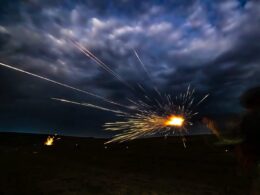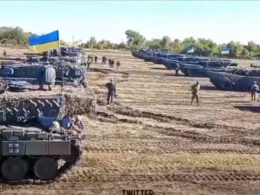A Ukrainian volunteer medic Yuliya Payevska (Taira) captured by Russian forces during their deadly siege of the port city of Mariupol delivered devastating testimony before US lawmakers on Thursday, recounting her experiences of torture, death and terror, Guardian reports.
Taira, who was detained in Mariupol in March and held by Russian forces for three months, spoke before the Helsinki Commission, a government agency created in part to promote compliance with human rights internationally. Payevska gained global attention after she slipped her bodycam footage to the Associated Press just before they left Mariupol.
She listed for the commission some of the atrocities she witnessed in Mariupol and in captivity:
"Pregnant prisoners, their fate unknown to their relatives or to the state.
A fighter who was beaten for three hours and then thrown into a basement like a sack. And only a day later, someone came to him.
A dead child in a mother’s arm.
A seven-year-old boy with bullet wounds dying in my lap because I could not ward off death in this case.
Prisoners in their cells screaming for weeks and dying from the torture without any medical help during this internment of hell. The only thing they felt before death was abuse and additional beating.
My friend, whose eyes I closed before his body closed down. And another friend. And another, and another.
A city of a half a million people dying before my eyes, under air strikes, methodical, planned.
Airstrikes on hospitals and residential areas.
A hospital full of wounded soldiers and civilians where anaesthetic drugs have run out and antibiotics are about to run out too.
Soldiers and entire medical staff sleeping two, three hours daily because surgeries are one right after another.
Medivac cars arriving every five, 10 minutes where the wounded and the dead are lying on top of each other, and whose fates are too impossible to understand even if you tried.
Burning cars with burning people in them.
Police officers taking out of the rubble women and children mutilated beyond recognition.
People collecting water from puddles.
Looted homes.
Dogs who once were pets dragging human limbs around the city.
Prisoners who were forced to take off clothes by their killers before they were murdered slowly and slaughtered.
Specially prepared torture chambers
“Do you know why we do this to you?” Payevska said a Russian soldier asked her as he tortured her. “Because you can,” she responded.




